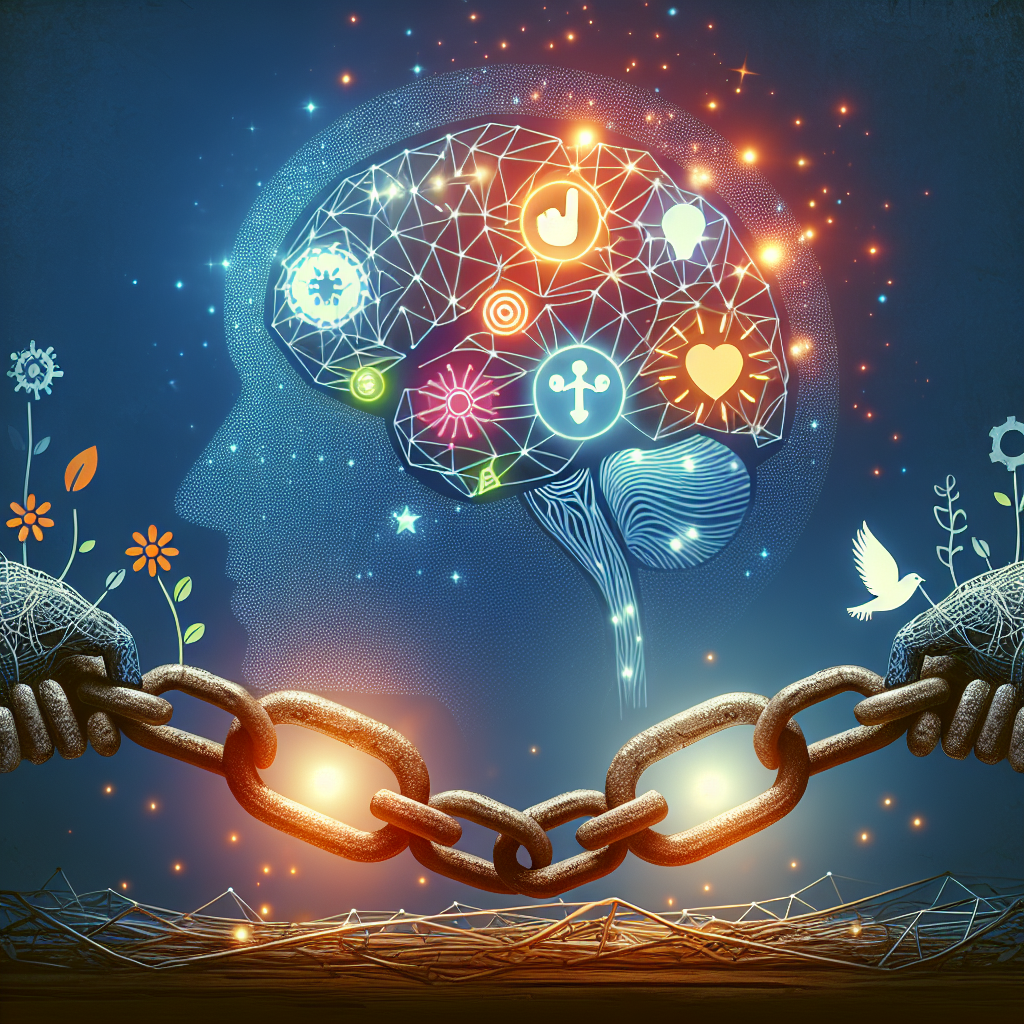Rewiring Resilience: The Ultimate Intersection of Trauma, the Brain, and Mental Health Recovery
Introduction
In a world where trauma often feels like a looming shadow, understanding how it intersects with our mental health and brain function becomes imperative. Rewiring resilience isn’t just a buzzword; it’s an essential journey toward recovery and strength. As we delve into Rewiring Resilience: The Intersection of Trauma, the Brain, and Mental Health Recovery, we uncover how the intricate workings of the brain can shape personal recovery journeys. This exploration not only offers hope but also equips individuals with knowledge to reclaim their lives.
The Neuroscience of Trauma
Trauma can have profound impacts on the brain. When individuals experience traumatic events, be it a natural disaster, emotional abuse, or physical violence, the brain reacts in complex ways. The amygdala, responsible for processing emotions and fear responses, often goes into overdrive. This heightened state can lead to anxiety, depression, and other mental health disorders.
Case Study: The Brain of a Trauma Survivor
Consider Sarah, a 29-year-old woman who endured a traumatic car accident. Post-accident, Sarah faced overwhelming anxiety and flashbacks. MRI scans revealed increased amygdala activity and reduced connectivity in her prefrontal cortex—critical for decision-making and impulse control. This case underscores the importance of understanding trauma’s neurological effects and how they inform treatment.
Mapping Mental Health Recovery
Recovery from trauma is not linear, but it is possible. Rewiring resilience involves reshaping neural pathways through therapies and interventions. Cognitive Behavioral Therapy (CBT), for instance, has been shown to create new patterns of thought that counter negative beliefs tied to trauma.
Table: Effects of Various Therapies on Different Aspects of Recovery
| Therapy Type | Main Focus | Expected Outcome |
|---|---|---|
| Cognitive Behavioral Therapy (CBT) | Thought restructuring | Reduced anxiety; improved coping strategies |
| Eye Movement Desensitization and Reprocessing (EMDR) | Trauma processing | Decreased PTSD symptoms |
| Mindfulness-Based Stress Reduction (MBSR) | Awareness and acceptance | Enhanced emotional regulation |
| Exposure Therapy | Facing fears | Reduced avoidance and increased resilience |
The Role of Neuroplasticity
Neuroplasticity—the brain’s ability to change itself—is a key player in Rewiring Resilience: The Intersection of Trauma, the Brain, and Mental Health Recovery. When we engage in new learning or therapeutic exercises, our brains form new connections. This adaptability is inherent, but individuals must actively participate in their healing to harness these capabilities effectively.
Case Study: John’s Journey of Neuroplasticity
John, a war veteran, struggled with PTSD for years. After significant therapy that included exposure to safe environments, meditation, and cognitive reframing, John reported far fewer symptoms. Neuroimaging studies pre- and post-therapy revealed enhanced connectivity in his brain networks associated with emotional regulation. This tangible improvement reflects neuroplasticity at work—the core of resilience enhancement.
Lifestyle Changes that Promote Resilience
Incorporating healthy lifestyle modifications can further enhance mental health recovery. Diet, exercise, and sleep are foundational to brain health and can aid in neuroplasticity.
-
Nutrition: Consuming omega-3 fatty acids, antioxidants, and vitamins can positively affect brain health.
-
Physical Activity: Regular exercise increases the production of brain-derived neurotrophic factor (BDNF), a protein associated with fostering resilience.
- Sleep Hygiene: Quality sleep is essential for memory consolidation and emotional regulation. Poor sleep impairs cognitive function, making recovery more challenging.
Emotional Regulation and Resilience
Building emotional regulation skills can empower individuals to navigate trauma’s aftereffects. Techniques such as mindfulness meditation help increase awareness of emotional responses, fostering resilience.
Interview Excerpt: Insights from a Therapist
Dr. Emily Carter, a clinical psychologist, emphasizes the significance of emotional regulation: "Helping patients recognize their emotional states is crucial. Emotions are not just reactions; they can be understood, processed, and modified. This is fundamental in the recovery from trauma."
Conclusion
Understanding Rewiring Resilience: The Intersection of Trauma, the Brain, and Mental Health Recovery equips us with the tools to navigate the often daunting landscape of recovery. By understanding the brain’s neuroplastic nature and employing effective strategies like CBT, mindfulness, and lifestyle changes, we can foster resilience even in the face of trauma.
Actionable Insights
- Engage in Therapy: Seek forms of therapy that resonate with you.
- Build a Support Network: Surround yourself with supportive individuals who encourage your journey.
- Practice Self-care: Prioritize emotional and physical health through active self-care routines.
By taking these steps, individuals not only enhance their recovery but also nurture resilience, transforming past trauma into a source of strength and empowerment.
FAQs
1. How does trauma affect brain function?
Trauma can lead to heightened activity in the amygdala and diminished connectivity in areas like the prefrontal cortex, impacting emotional regulation and decision-making.
2. What is neuroplasticity, and why is it important?
Neuroplasticity refers to the brain’s capacity to reorganize itself by forming new neural connections. It is vital for recovery as it allows individuals to develop new patterns of thought and behavior.
3. How can lifestyle changes impact mental health recovery?
Positive lifestyle changes, such as nutrition, exercise, and sufficient sleep, can foster brain health, promote neuroplasticity, and enhance emotional regulation, supporting recovery.
4. What therapies are most effective for trauma recovery?
Commonly effective therapies include Cognitive Behavioral Therapy (CBT), Eye Movement Desensitization and Reprocessing (EMDR), and mindfulness-based practices.
5. Can emotional regulation skills be learned?
Yes! Emotional regulation is a skill that can be developed through various therapeutic techniques, mindfulness, and practice, allowing individuals to better manage their emotional responses to trauma.
Through this journey of understanding, we hope to inspire resilience in yourself or someone you care about. The road to recovery and growth is filled with possibilities, and by harnessing the insights from Rewiring Resilience: The Intersection of Trauma, the Brain, and Mental Health Recovery, we can all move toward a more resilient and fulfilling future.

